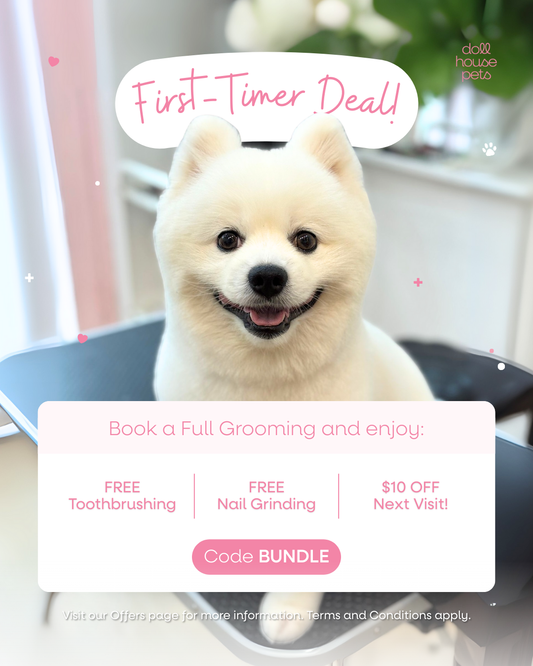

Brushing your dogs’ teeth is just good dental hygiene. Most vets recommend that it be done at least twice a week toensure your dog maintains healthy teeth and gums. If you’ve not been doing this (and, unfortunately, many people don’t)it’s never too late to start. Your dog should have its own toothbrush and special toothpaste designed for dogs. Make sureyou brush the back teeth in small circles, the same way you would your own, and brush up and down the length of the“pointy” canine teeth. Dog toothpaste is made to have a pleasing taste (for the dog, don’t try it yourself) and this shouldmake your dog willing to let you perform this activity.
Some people don’t realise that dental hygiene is as important for dogs as it is for human beings. Just like in people, dogs’teeth can gather plaque after eating. When plaque builds up and hardens it becomes a coarse brown substance calledtartar. As tartar accumulates it can work its way under the gums and cause painful infections and gum disease. This goeson in the mouths of dogs just like it does in people. You brush your teeth every day, probably two or three times. Whatdoes your dog do?
Veterinarians recommend that dog owners brush their dog’s teeth at least twice a week to keep the buildup of tartar at aminimum. Most pet supply stores carry specially designed toothbrushes and toothpaste for dogs. Remember that a dog’ssense of taste and smell is far more acute than that of a human and the zesty, tingly, mint taste of toothpastes for peoplewill be extremely awful to a dog. If you try brushing your dog's teeth with Colgate just once and it will likely be the lasttime he lets you anywhere near him with a toothbrush. Use the specially designed doggie toothpaste.
Some people don’t have the time or patience to brush their dogs’ teeth on a regular basis. If you’re one of these, you’llwant to care for your dog's teeth in another way. A dog’s natural tendency to chew is a built-in dental care mechanism.Dog biscuits break into small chunks when chewed and rub against the teeth, providing a cleaning service. There’s nosubstitute for brushing your dog’s teeth, but if you can’t do that, make sure he gets some sort of crunchy dog biscuit on aregular basis.
Dogs that do not receive proper dental care and do not have access to crunchy teeth cleaning foods run the risk of severaltypes of mouth disease. These can be as mild as gingivitis (a gum disease that results in swollen, inflamed gums) and asserious as a bacterial infection that can spread through the dog’s bloodstream causing damage to vital organs. You owe itto yourself and your dog to take care of its teeth.
Dental services are available for dogs, just like they are for people. A dog’s teeth can be filled, capped, and extracted ifnecessary, just like a human’s. The best course of action, however, is to avoid the need for such services by properlycaring for your dog’s teeth. If you can avoid unnecessary pain and discomfort for your furry friend, you should do so.Preventative doggie dental care can save you money as well. Doggie dental procedures can be quite costly.
At Dollhouse Pets, we provide Dental Maintenance and Professional Dental Cleaning, Polishing & Anti Tartar Treatment services for your pet.



